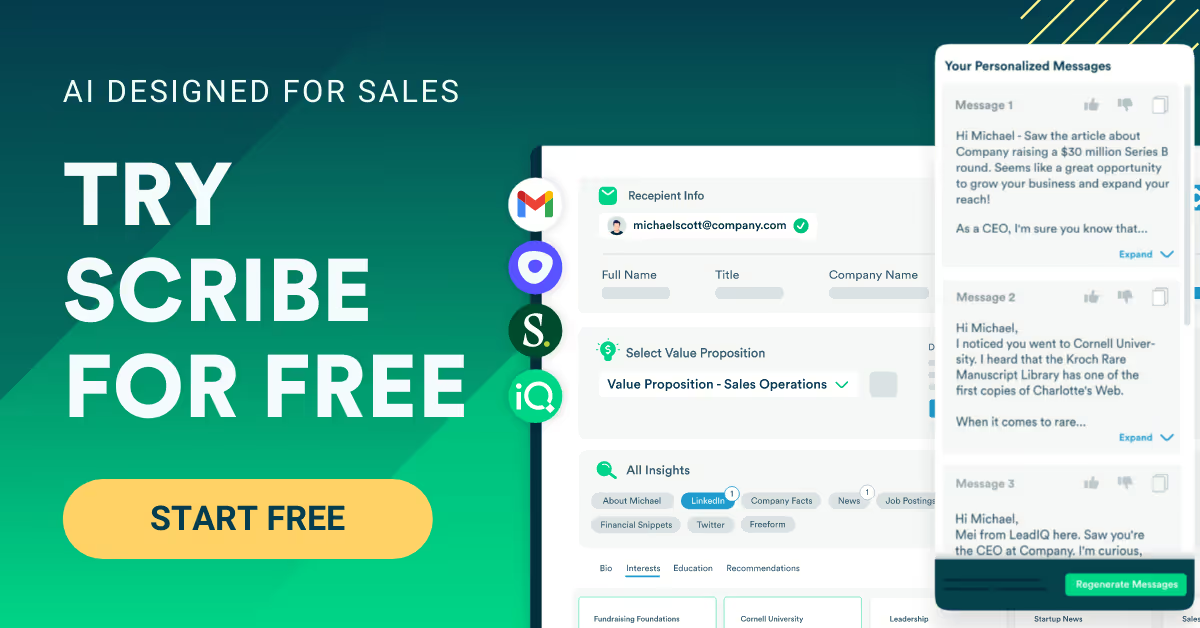Ready to create more pipeline?
Get a demo and discover why thousands of SDR and Sales teams trust LeadIQ to help them build pipeline confidently.

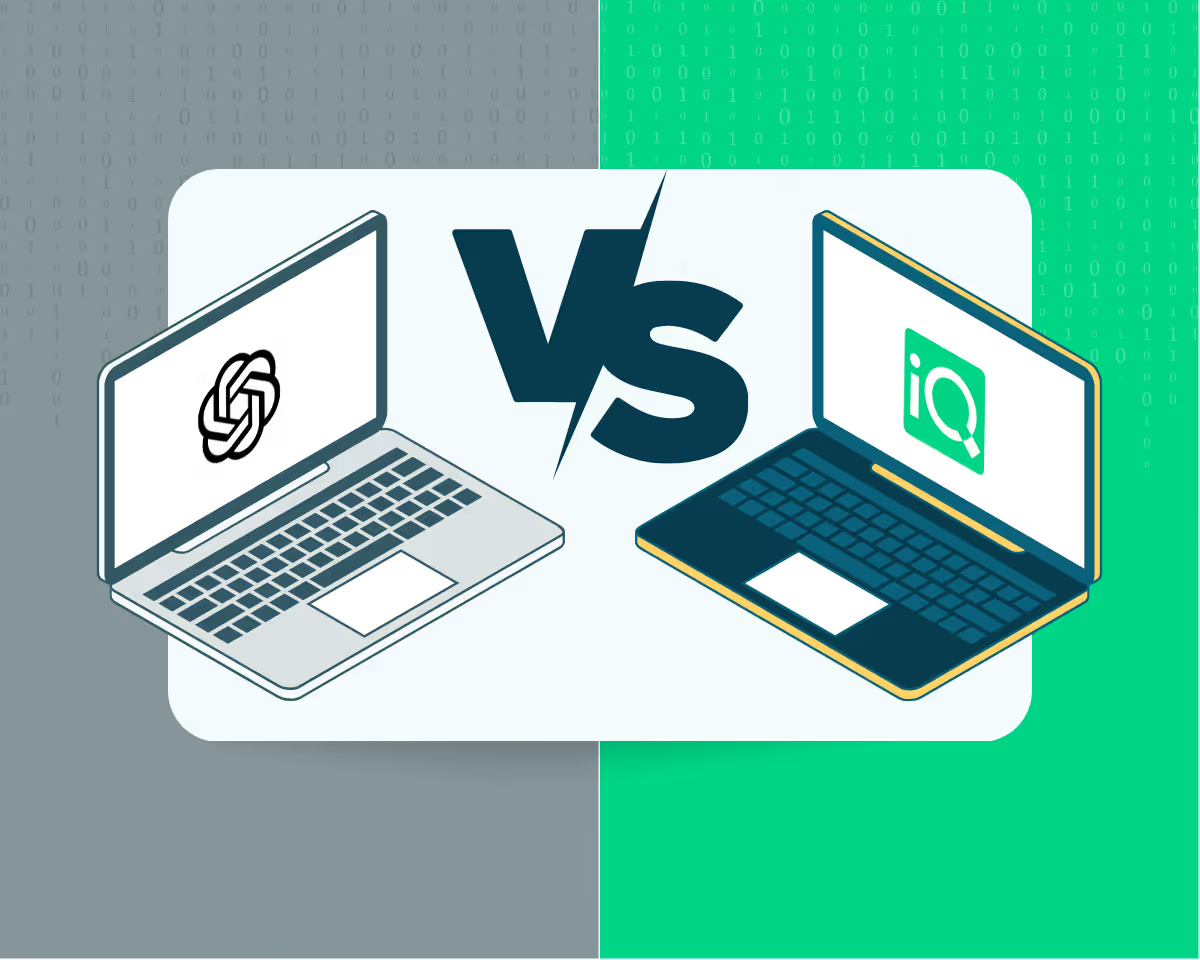

ChatGPT can provide a strong starting point for crafting sales emails but may include unverifiable details and lack personalization. Scribe AI by LeadIQ is tailored for sales emails as the technology integrates prospecting data for more targeted and relevant messages.

Scribe AI offers multiple messaging options and the ability to tailor content closely to a prospect's specific data, enhancing personalization and relevance in sales communications.

Scribe AI’s integration with sales platforms and its ability to generate sales-oriented communications quickly gives it an advantage in terms of operational efficiency and effectiveness over ChatGPT and other AI sales tools on the market today.
Get a demo and discover why thousands of SDR and Sales teams trust LeadIQ to help them build pipeline confidently.
We addressed why sellers are frustrated with ChatGPT in another post. But we shouldn’t take away from ChatGPT’s mind-blowing versatility; after all, I spent an evening asking it to write mashup treatments for movies. My favorite was the cross-over between Indiana Jones and Emma titled "The Archeologist and the Governess" (coming soon).
Yet, ChatGPT, for all its treasures, is tailored for something other than selling, whereas Scribe is born and bred for sales messages. Let's see how each performs. I started with ChatGPT.
First, I imagined an absurd company that distributes chicken fat to restaurants. (Heavenly Fat also features in this post about great value propositions.)
Next, I fed ChatGPT this prompt:

I received this impressive email from ChatGPT:
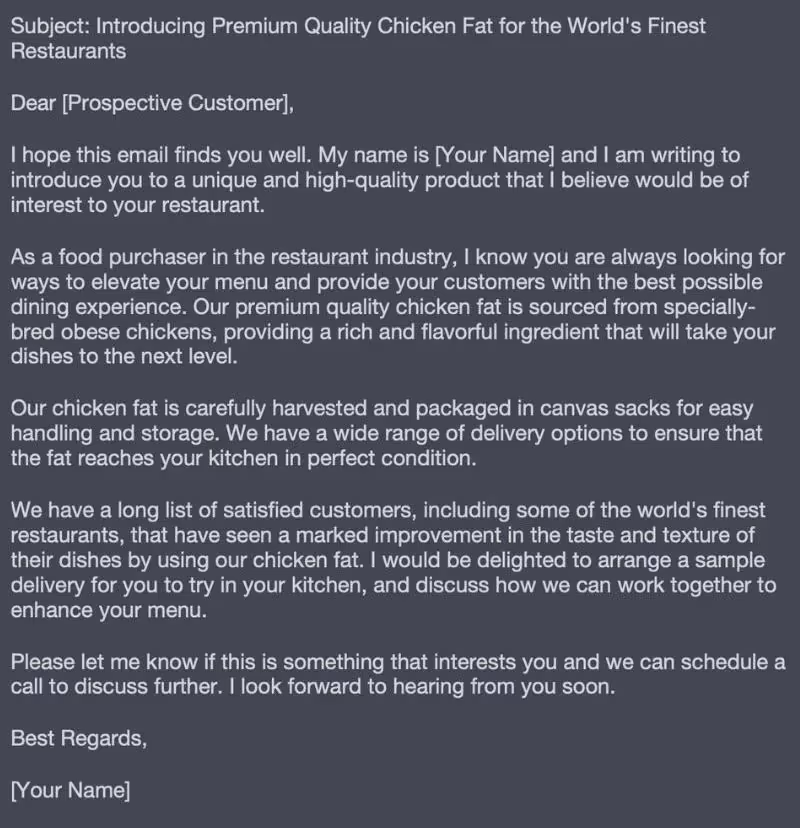
It's a good email, really. But a few things jump out.
The opening is generic and impersonal. "I hope this email finds you well." Personalization could help it grab the reader.
Second, it's too long. No hard and fast rules, but most say the ideal word count for emails is 50 to 125 words. This email comes in at 225, so it could be more concise.
Third, it embroiders the truth a little. These are ChatGPT assertions that fall outside the prompt.
ChatGPT is very good at syntax and exceptional at mimicking the form of certain types of communication. Unfortunately, to mimic the form, it sometimes gets the bit in its mouth and takes off on its own.
So, some adjustments are in order. I can fine-tune the prompts to reduce the word count or I can revise the email to match the company's policies. After some minutes of manual editing, the email is more concise. I also included a bit of personalization in the opening to grab the reader's attention. This part is easy for the test because the recipient is imaginary, but it would be significantly harder if it was a real person.
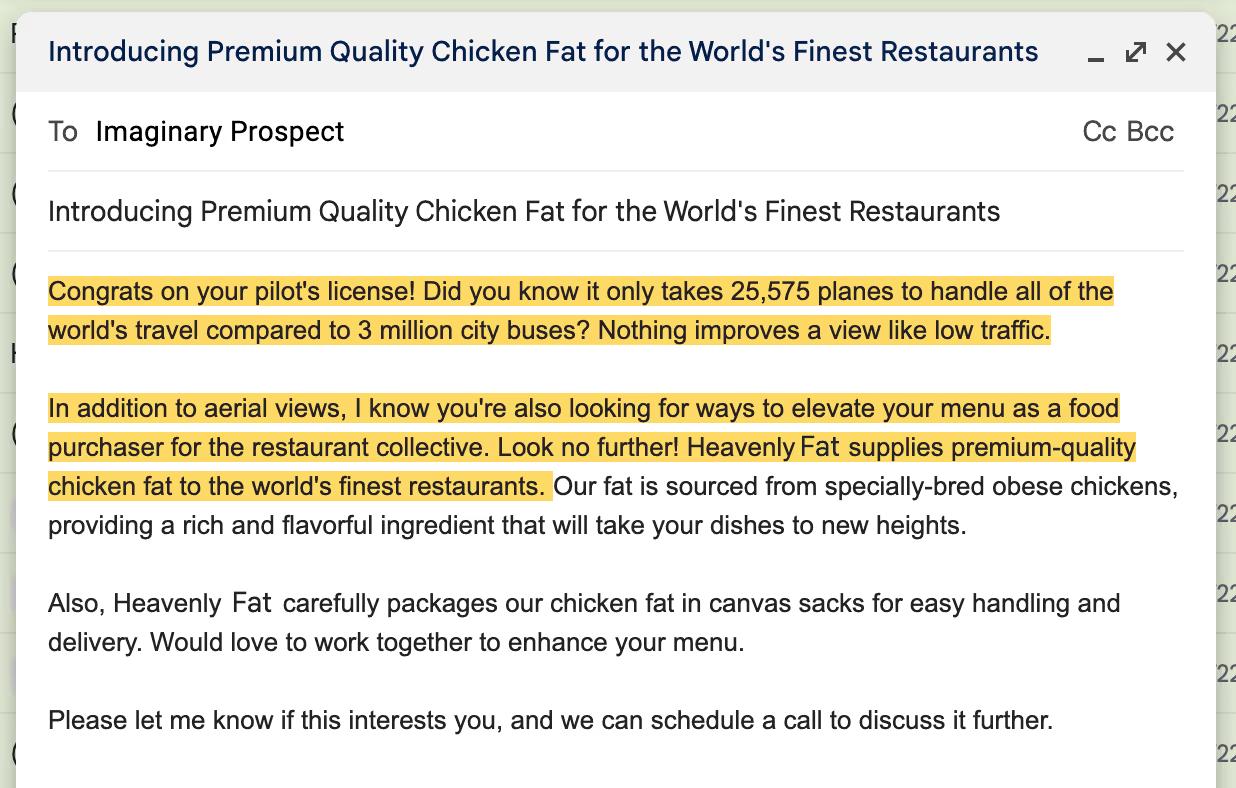
Although this requires some substantial nips and tucks, it took less time than starting from scratch.
How does Scribe compare?
Well, the first thing I notice is I need a recipient, and it’s impossible to find a random email address. I googled "email address chef" and "restaurateur email" and a bunch of other variations, trying to get ONE email address. And….no luck.
Thankfully, because Scribe is part of a prospecting platform, I used LeadIQ's Identify capability and found contact data in seconds. I also received a bunch of other inputs to personalize the message then inserted the same value prop as before:
"Heavenly Fat helps chefs make the tastiest chicken fat dishes in the world by selling premium quality chicken fat harvested from obese chickens and delivered in canvas bags to the world's finest restaurants."
Next, I select the insights I want the AI to sort through to personalize the email. These are insights specific to the prospect that Scribe conveniently consolidates. I select:
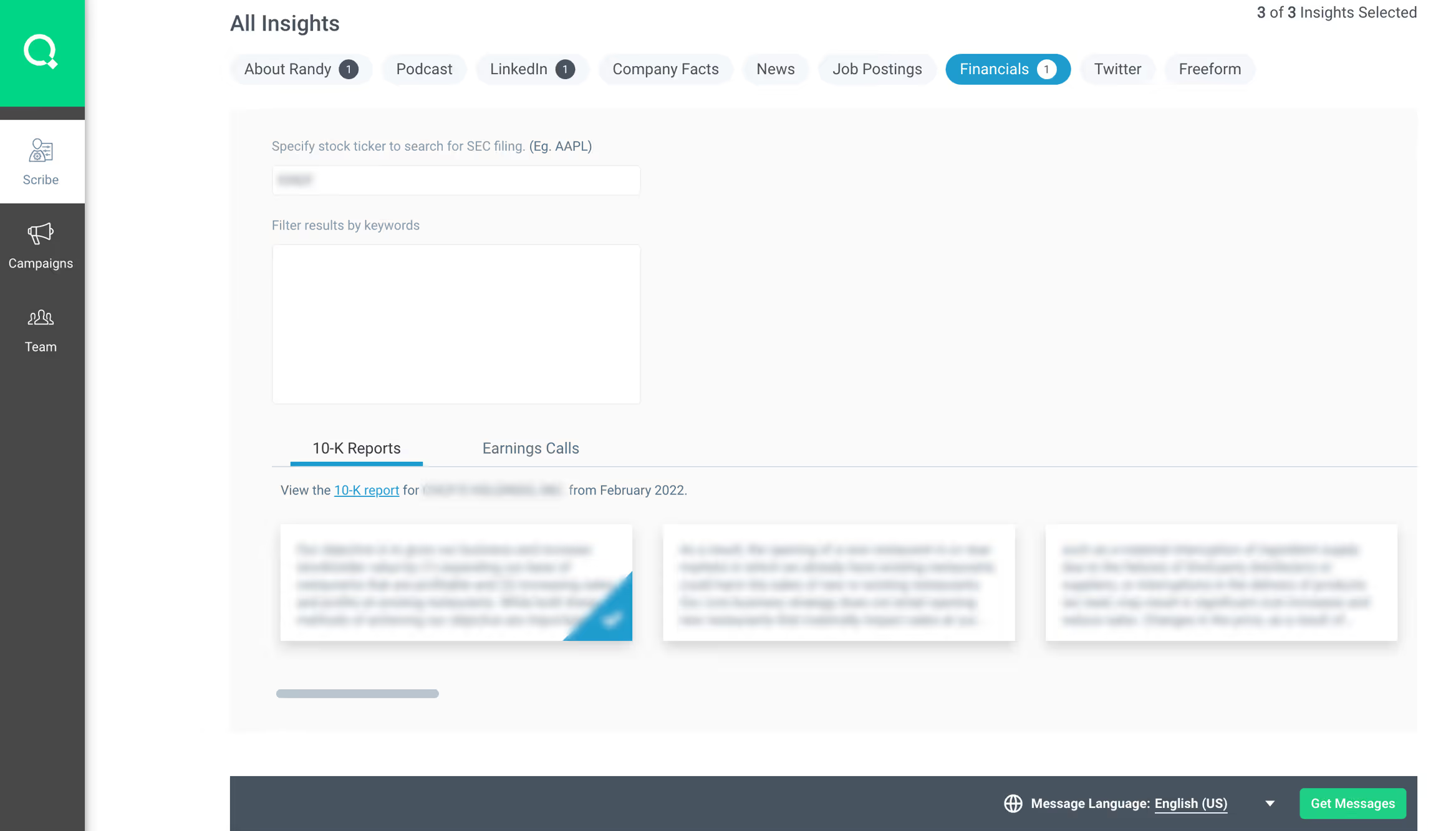
Scribe gave me these three subject lines for the first message:

Here's the first email:
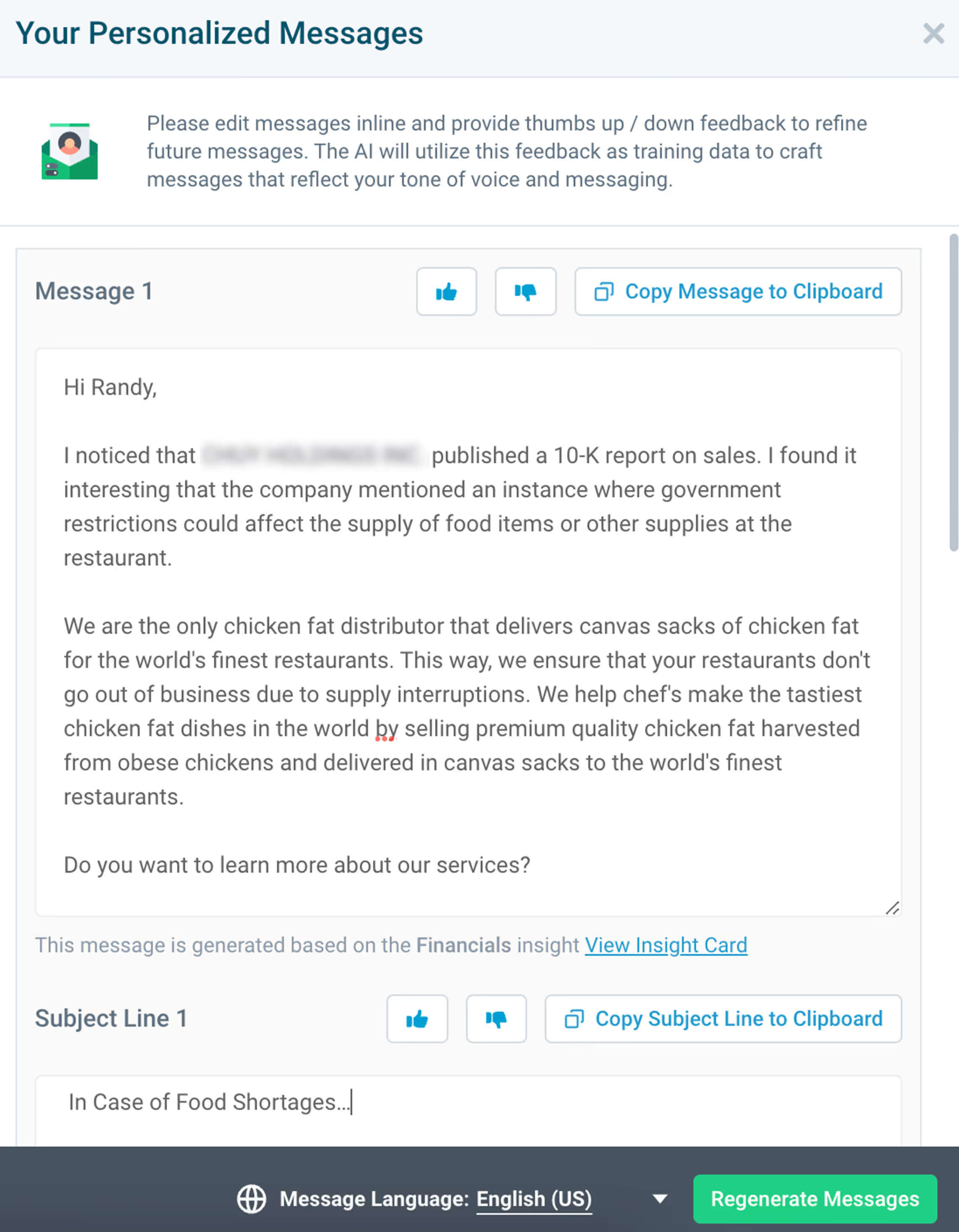
It's brief and to the point, personalized, and I get multiple subject lines to choose from. But there is some fat to trim (😉), and some of the syntaxes are awkward, so I spend one minute editing and arrive at:

I still have two more email options and six more subject lines.
Here's the next one:
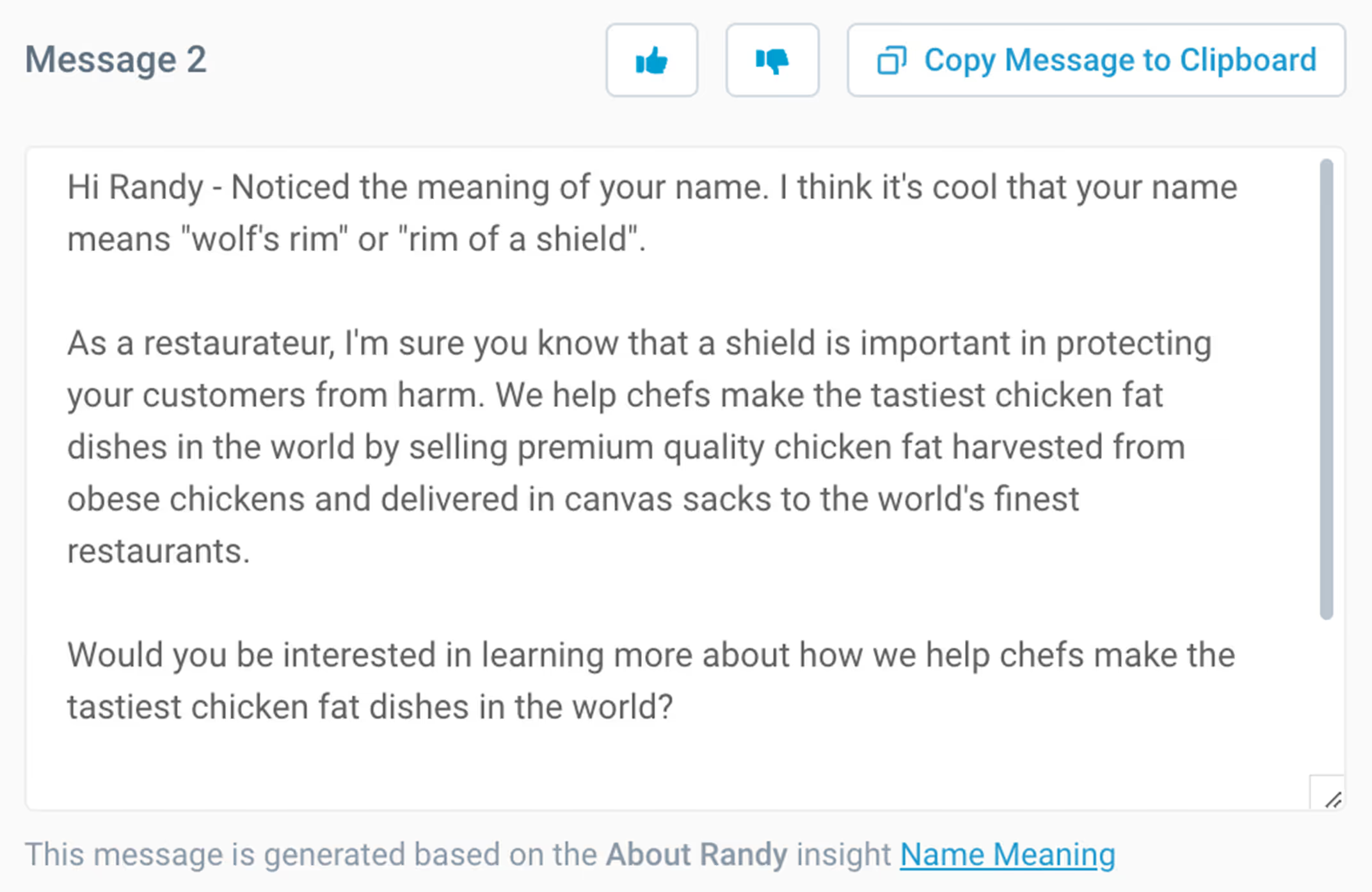
Okay, a little weird, but I know what the AI is striving for, and after a few seconds, I have an edit:
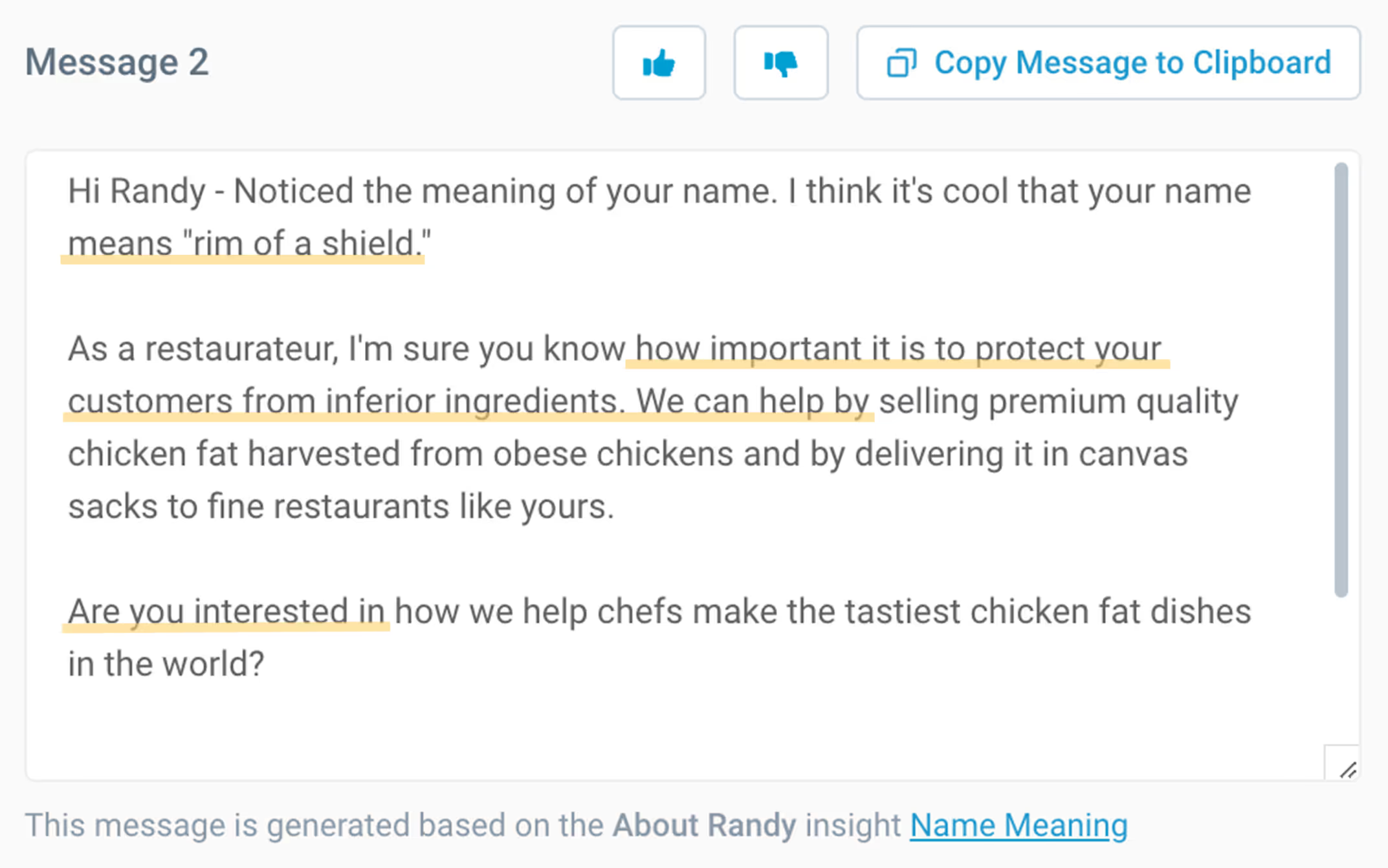
One more:
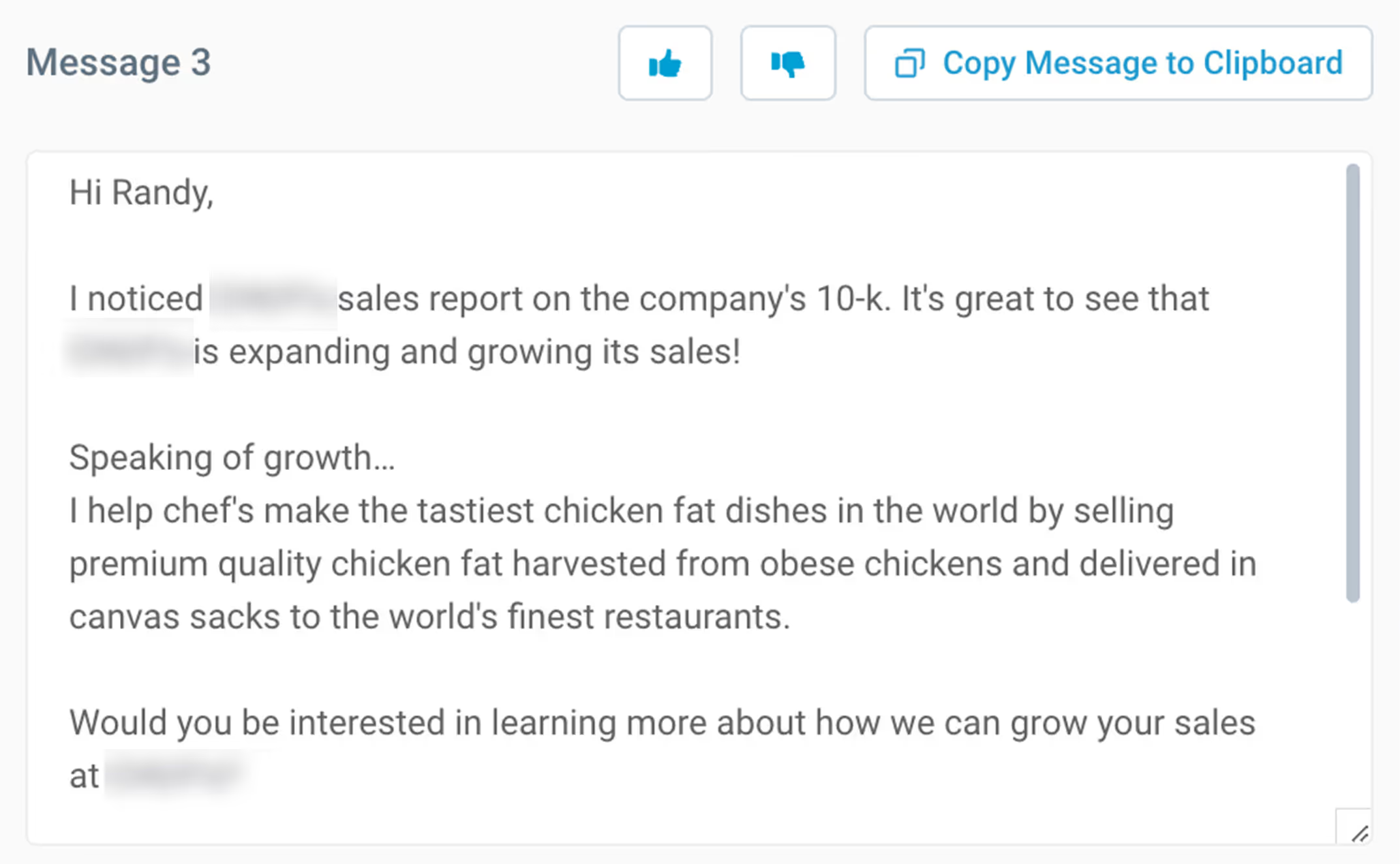
This one needs a few tweaks. It takes me 20 seconds.
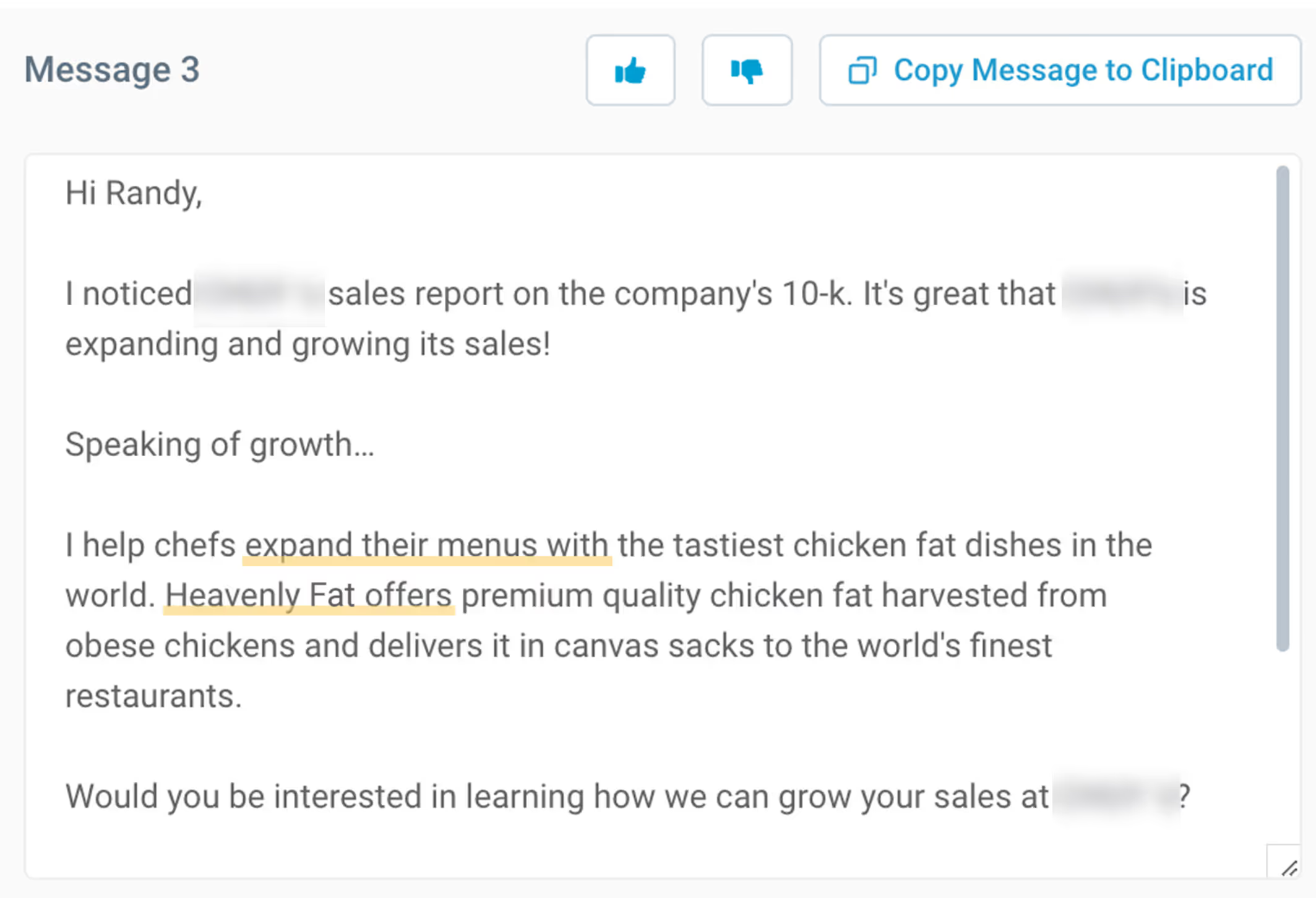
If I want, I can ask Scribe to generate more versions, change the inputs, and use LeadIQ's other capabilities to capture many more leads in a streamlined process.
The results? We send the right message, to the right person, at the right time. What's more, the AI learns from your feedback and edits over time, producing messages aligned to your style. This means less time spent tailoring messages and more time to focus on your prospects.
In summary, ChatGPT can write a pretty good first draft, but it doesn’t quite understand the requirements of a sales message. It doesn’t include relevant insights, which means you have to personalize from first hand knowledge or send a generic templated email. Worse, sometimes ChatGPT goes off script, which could create an embarrassing situation for an SDR in a hurry. Last, ChatGPT has no way of capturing contact data, and switching between a contact data provider and ChatGPT is time consuming.
Scribe, on the other hand, is not good at loglines for screenplays or generating new fairy tales, but it’s great at serving its singular audience: sellers. Multiple messages and subject lines keeps the seller’s hand on the wheel, and seller involvement keeps selling a relational enterprise. Insights personalize each message in record time, and Scribe’s connection to the larger platform makes operations quick and easy.
AI is finally living up to its promise, and LeadIQ can help your sales department take advantage.
